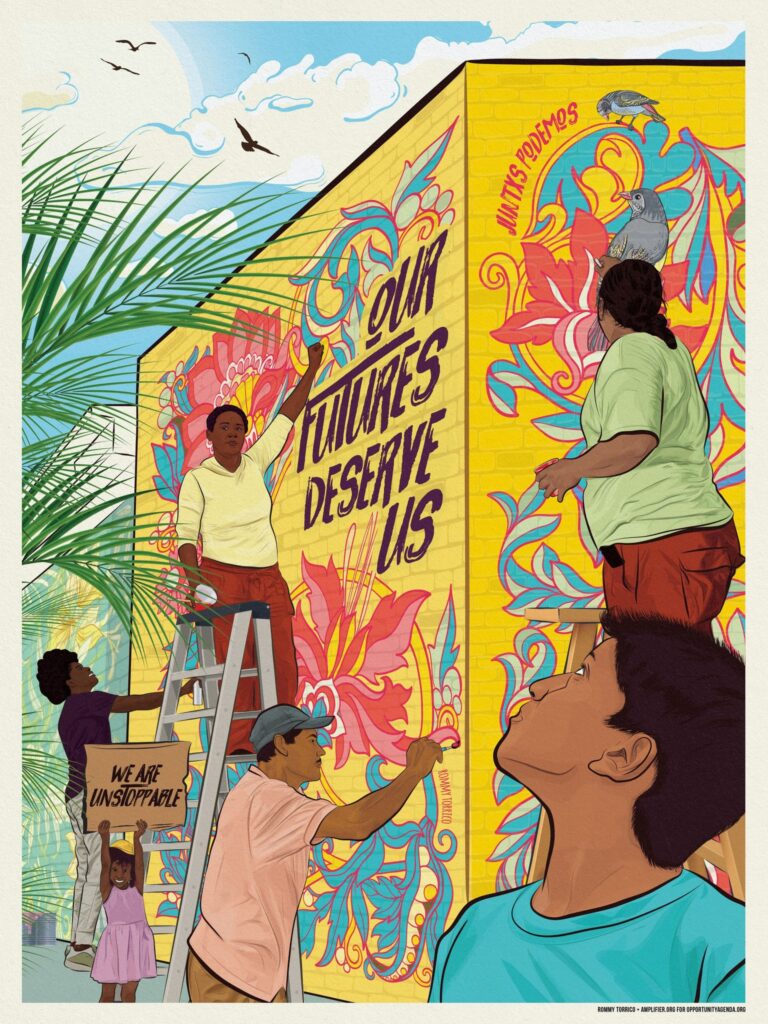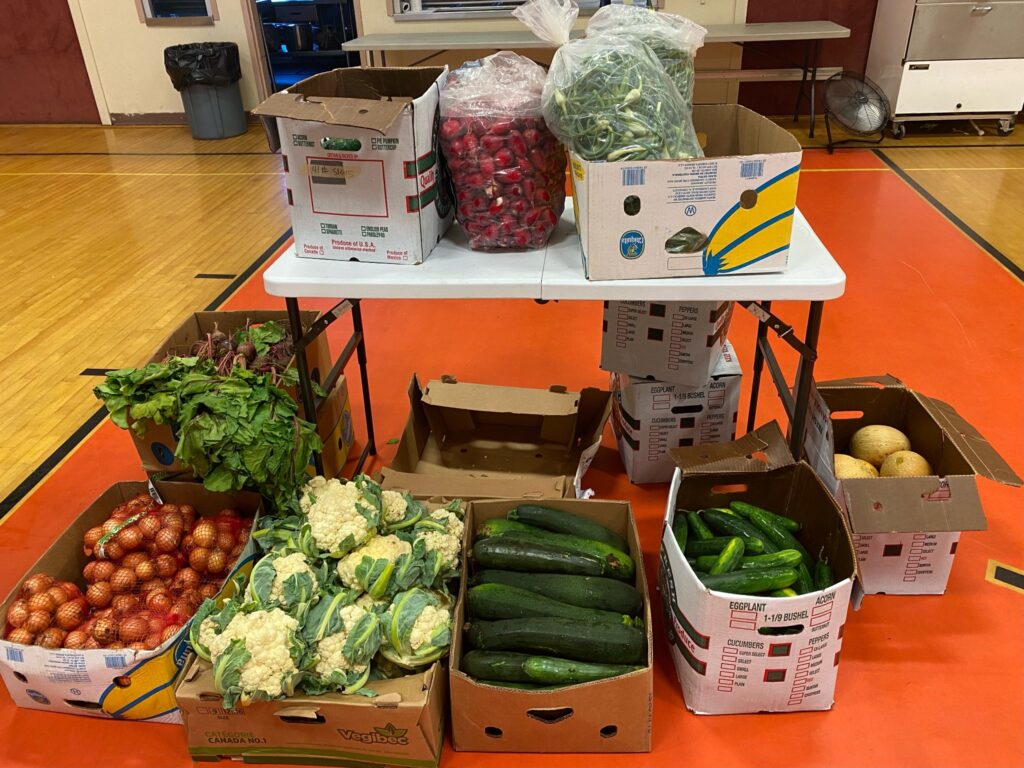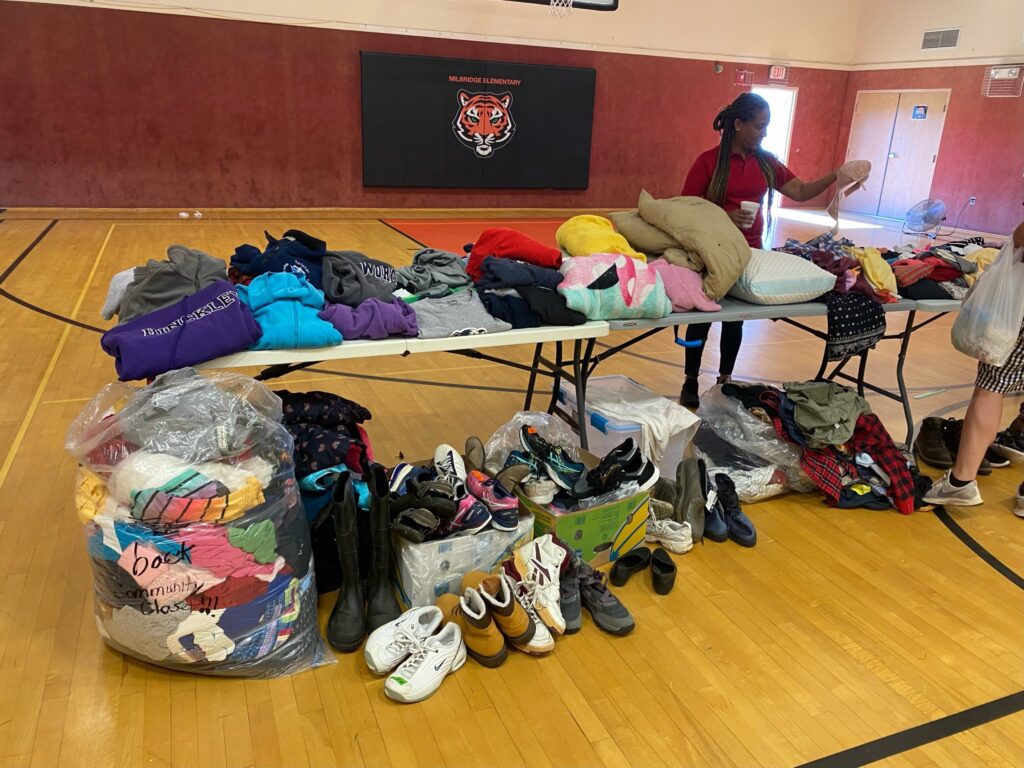National Hispanic Heritage Month is an annual recognition and celebration of Hispanic Americans and their contributions, influence, and achievements throughout history and today. Celebrated from September 15 to October 15, this month provides an opportunity to pay tribute to generations of Hispanic Americans. We’re joining in this month of recognition by celebrating Hispanic-led organizations combating food insecurity here in Maine.
Culturally Relevant Food Series – National Hispanic Heritage Month – Mano en Mano
Based out of Downeast Maine, Mano en Mano is a nonprofit which works with immigrants, migrant workers, factory workers, and farmworkers. Most of the communities they work with are from Latinx and indigenous backgrounds. For 17 years, Mano en Mano has envisioned a stronger, more inclusive Maine where the contributions of diverse communities are welcomed, and access to essential services, education, and housing are ensured.
Mano en Mano has responded to barriers community members face in accessing culturally-relevant food. As a recipient of the Community Redistribution Fund (CRF) for a third year, Mano en Mano is supplying their community by purchasing, assembling, and delivering non-perishable and culturally-relevant food boxes.
To celebrate Mano en Mano and their work, we interviewed Executive Director & Director of Rayitos de Sol Childcare, Juana Rodriguez Vazquez, and Migrant Education Program Director, Leslie Monroy.
What does Hispanic Heritage Month mean to your organization and what message would you most like to share during this month of celebration and awareness?
Juana: The organization was founded by the Latino community moving into Maine, specifically Milbridge, so it means a lot to celebrate all the Latinos and Hispanics. They are leaders in the community and nationally. It means a lot to uplift and celebrate their work. We also want to uplift and celebrate all of the challenges and struggles we have overcome.
Leslie: We have also been representing our leadership and other Hispanic leaders on our social media to celebrate this month.
How might the larger community honor and celebrate Hispanic Heritage Month by assisting your efforts? In other words, what are some of your current needs that could be met by the general public or through donations?
Juana: Some of our efforts to celebrate Hispanic Heritage Month include highlighting artists and other Hispanic leaders on social media. We are trying to start an art project, so if anyone is interested in creating art around this month and displaying it, we would love to share that.
Some of our other efforts include helping seasonal workers. We welcome any support for the transition into the colder months.
Leslie: The donations that we seek now are mostly warm clothes, jackets, blankets, bedding, and food.
Juana: If anyone is interested in donating items or your time, we are open Monday-Friday from 10 a.m. to 6 p.m. at the office in Milbridge, and you are welcome to stop by. Or, you can call (207) 546-3006 to coordinate a time to volunteer or drop off donations over the weekend/off-hours.
Share what you’re doing with the CRF grant and hopes/dreams for continued partnership.
Juana: The CRF grant has enabled us to bring culturally relevant food to the area. It has allowed us to keep our food pantry stocked with foods that community members share as essential or challenging to access in the area. This enables community members to have food that they recognize and know how to cook. People in rural areas find it difficult to access food because of transportation or how isolated they are from stores. Providing food directly to them through food drops has been really helpful. We provide food for about 400 folks, including families and kids. During the blueberry season, we supported over 2,000 people.
We have also started a bilingual childcare program, which is possible through Good Shepherd Food Bank’s funding. This program is about celebrating community, language, and culture while addressing the need for bilingual childcare within our community. On October 19, we will be hosting and celebrating a groundbreaking event for our new bilingual childcare center.
Leslie: One hope for the future would be to expand our food pantry. It’s very small and will be hard to manage during the winter. We hope to add a food pantry room with refrigeration and storage.
What excites you about the Food Bank’s Community Redistribution Fund grant?
Leslie: For me, seeing people’s faces when they get culturally relevant food and seeing how excited and happy it makes them. I’ve been going out with the team to the camps. The workers are not expecting us to bring snacks that are only bought from their home countries or that are very hard to get. They are so excited and grateful. It’s awesome to get that feedback and to hear how important it is.
Juana: Yes, it brings so much excitement. It is also a basic need. It’s something that people should have access to. Food has a lot of power in how it brings people together. It’s exciting to see that within individual workers, families, and kids.
Please share your experience working with Good Shepherd Food Bank during the grant process.
Juana: Our grant process experience with Good Shepherd Food Bank was easier than other grants we’ve had to apply for. I appreciate the communication and relationship aspect of this grant. I appreciate shifting the perspective away from having to write long data reports.
Leslie: The grant process felt very welcoming and straightforward. I felt that my voice was heard, and I could express what I needed to say. I liked the diversity of the people that were a part of the process and how inclusive you are trying to be.
Thank you to Executive Director & Director of Rayitos de Sol Childcare, Juana Rodriguez Vazquez, and Migrant Education Program Director, Leslie Monroy.
One of the Food Bank’s core values is inclusion, yet many of our programs have historically excluded the needs of communities of color. We acknowledge this exclusion and are actively working internally and alongside communities of color to source culturally important foods to ensure all communities have the foods they need to thrive.
To learn more about the Community Redistribution Fund and awarded grants, please go here.



